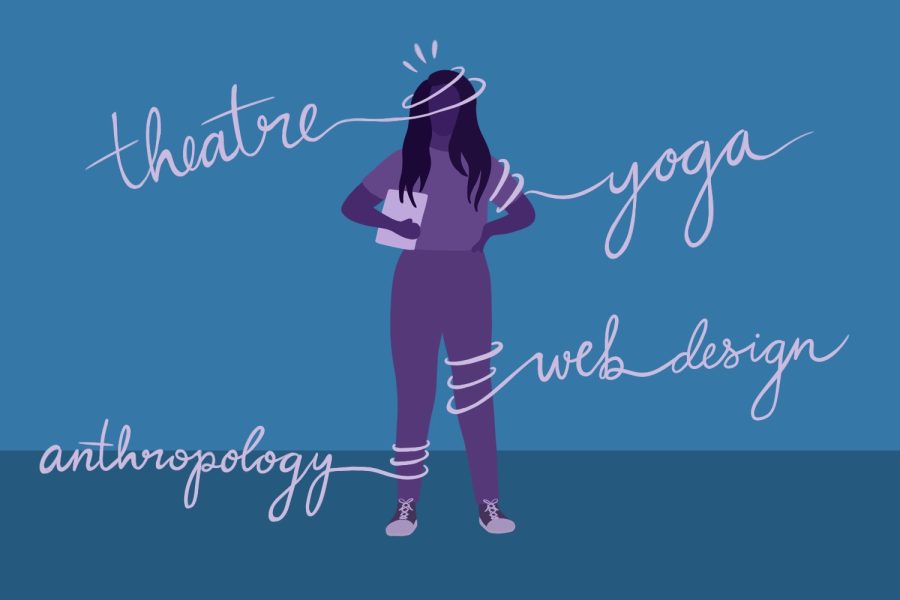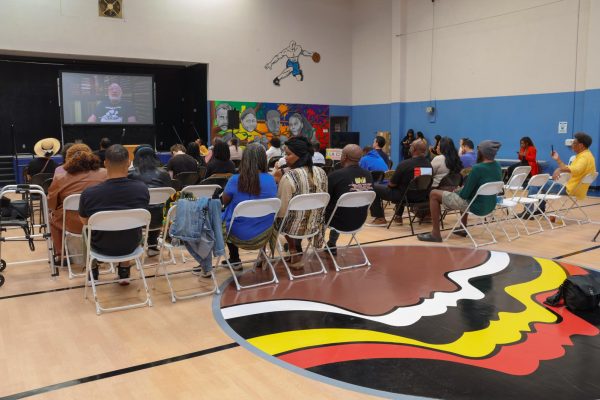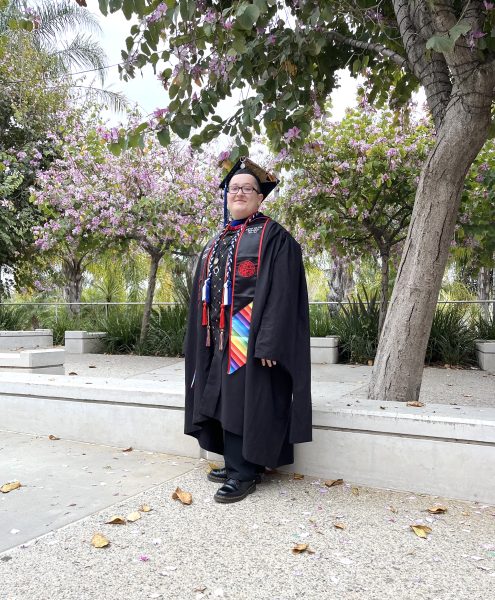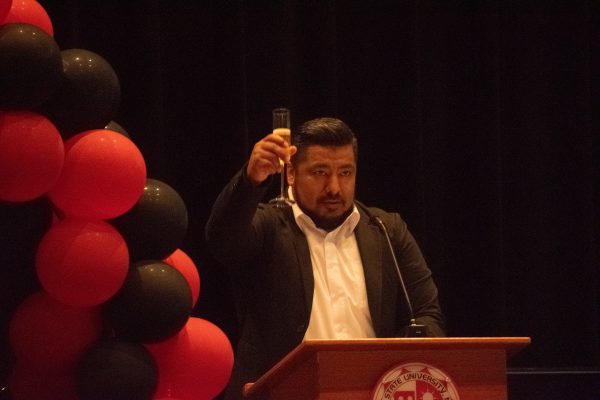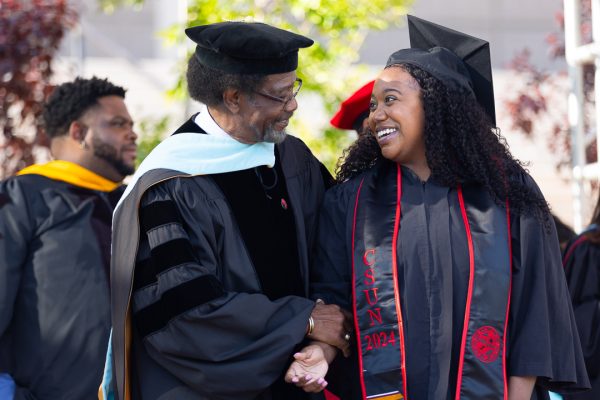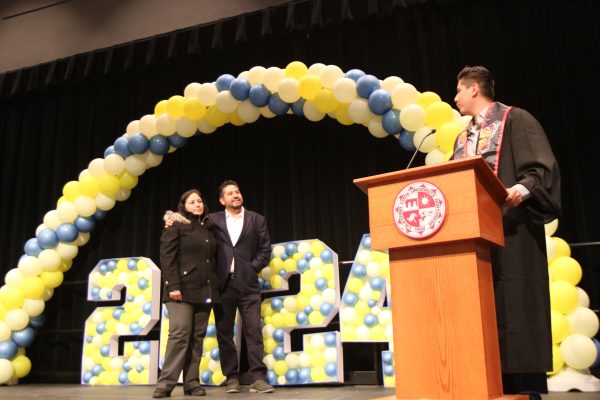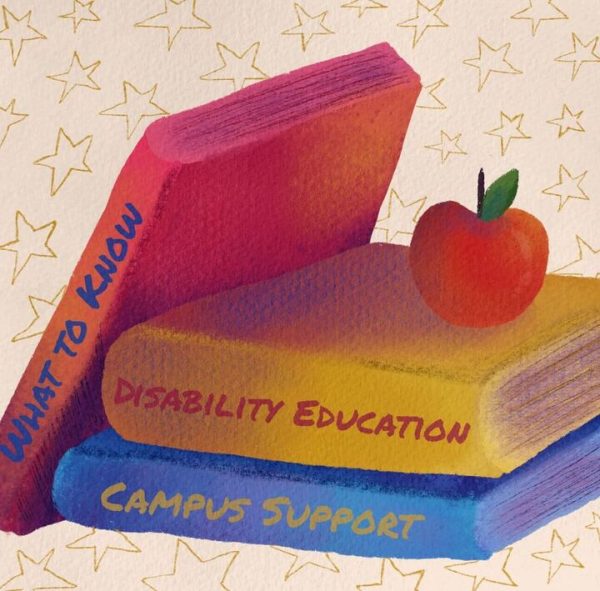OPINION: Elective classes offer students new perspectives
Illustration by Carolyn Burt.
February 22, 2022
Elective courses are typically seen as unnecessary by most college students. Within conversations with classmates, I’ve learned that they’re described as a waste of time.
College credit is often the only value students see. With that said, elective courses offer students more insight into their social identity. Here, they’re able to learn about different topics that create new perspectives.
Elective courses can range from anthropology to yoga. The variety allows students to pick a class they are interested in, as well as to take a class that is not a requirement for their major.
Students should choose a course that sparks their interest, in which they can learn about various topics in a nontraditional way.
B.D. Wortham-Galvin, professor at the University of Maryland School of Architecture, Planning and Preservation, introduced a class focused on Homer Simpson’s fictional hometown of Springfield. While this class may seem silly, Wortham-Galvin uses it to study the American landscape. Using Springfield creates comfortability between students to discuss topics like race and gentrification. The fictional town allows for students to dive deep into environmental topics without anyone’s hometown being the target of the conversation.
The comfort that can be found in elective courses allows students to view college as not just a responsibility, but a place to grow.
Professors are experts on the topics they teach. This allows students to learn about these new concepts with guidance. College is a prime time for students to create connections and uncover new passions.
Taking advantage of that position reduces a student’s fear of failure in their future career. With the guidance of their professors they have the freedom to learn about the subject without expectations.
Setting aside expectations, students can explore their own identities. Choosing classes they’re interested in creates passions based on their morals, culture or even hobbies.
“Take classes you’ve always been interested in but have never taken the time to do. In doing that, explore what really lights you up. Follow those things in life because we can get stuck in the ‘how-to and should do’ or other expectations,” said professor Wendy Hassenpflug, who teaches yoga at CSUN.
Hassenpflug considers her elective yoga class as a tool that allows students to learn more about themselves.
“It is really cool to see people reflect back on the semester and see how much they’ve learned about themselves. Who they are and how they’re showing up in life. How they are or aren’t reacting to what’s going on around them,” Hassenpflug said.
Learning about their own identity allows students to understand how society affects them. While labels can be argued as a way to box an individual in, they can also teach students what resources they may need.
Students understanding their social identity in a time of their lives where they have access to multiple resources will aid them in the long run. This will guide students to their place in society and how they can cultivate their careers.
Elective courses are able to help them understand what resources are available to them, and even what societal issues impact them.
Taking an elective course is already a requirement for college credit, but seeing these courses as a place to grow is a benefit that should be taken advantage of by all students.
